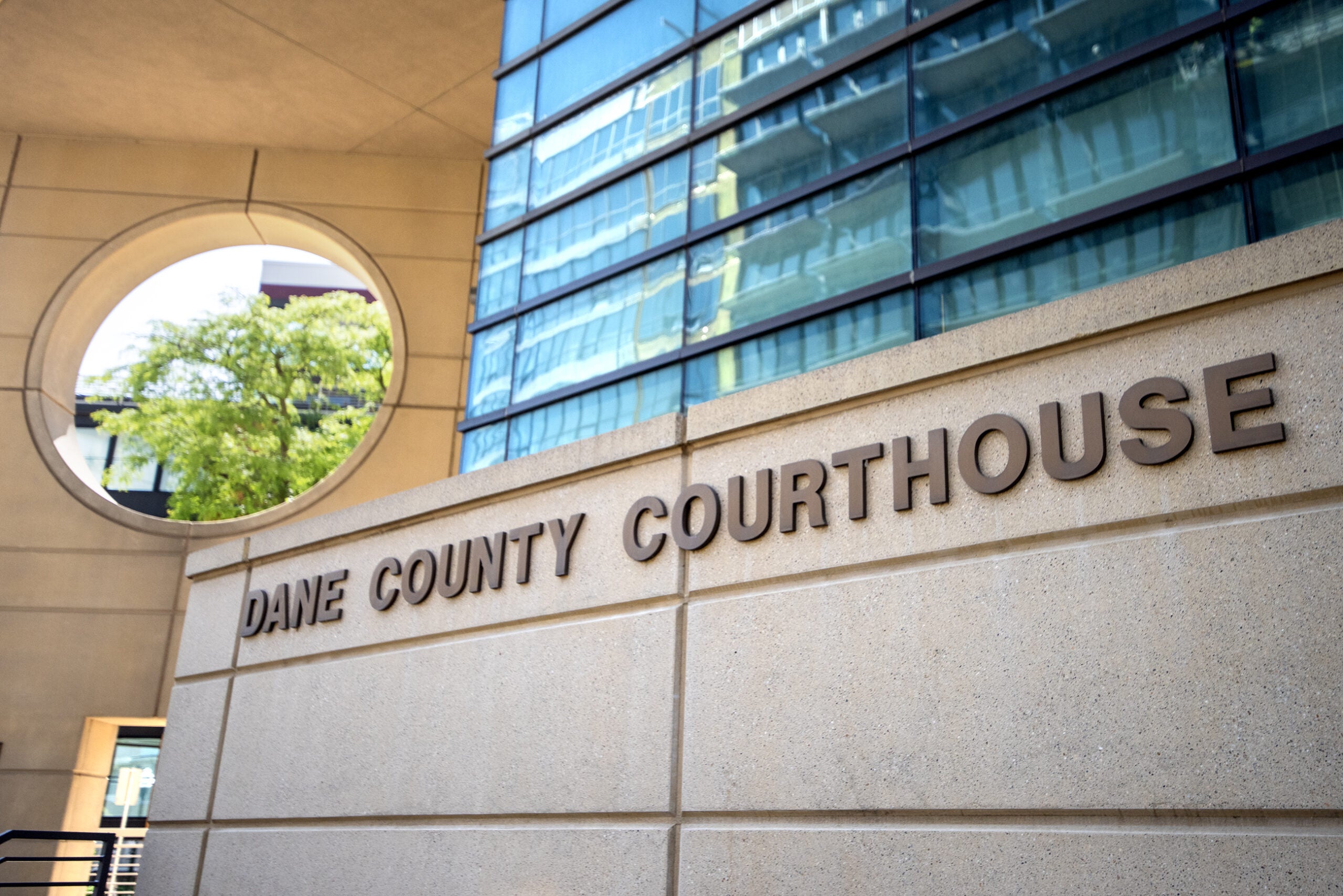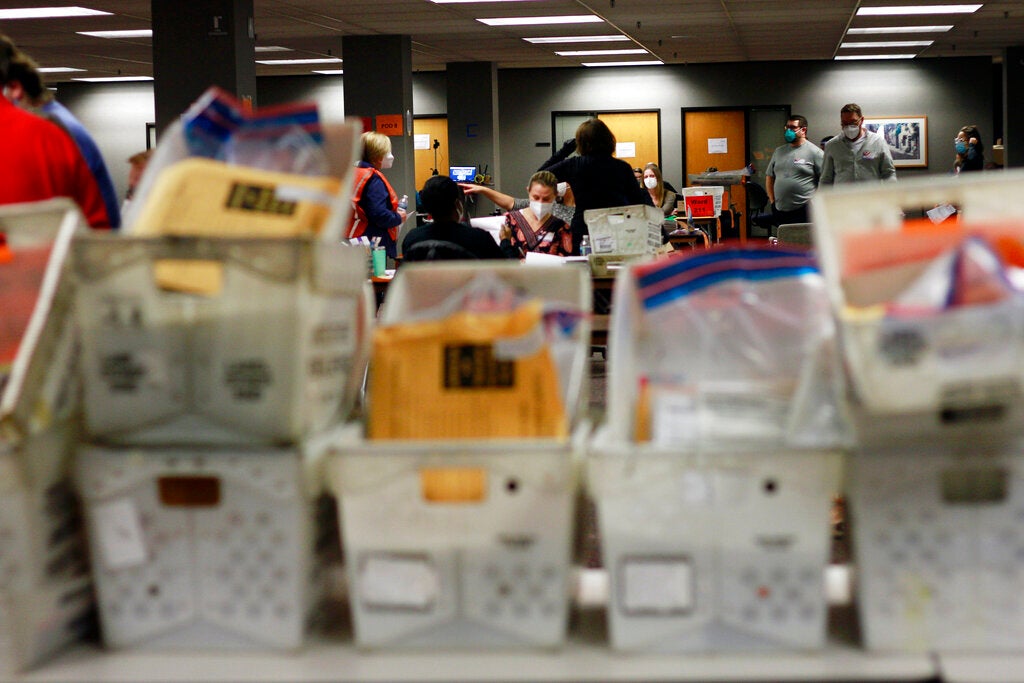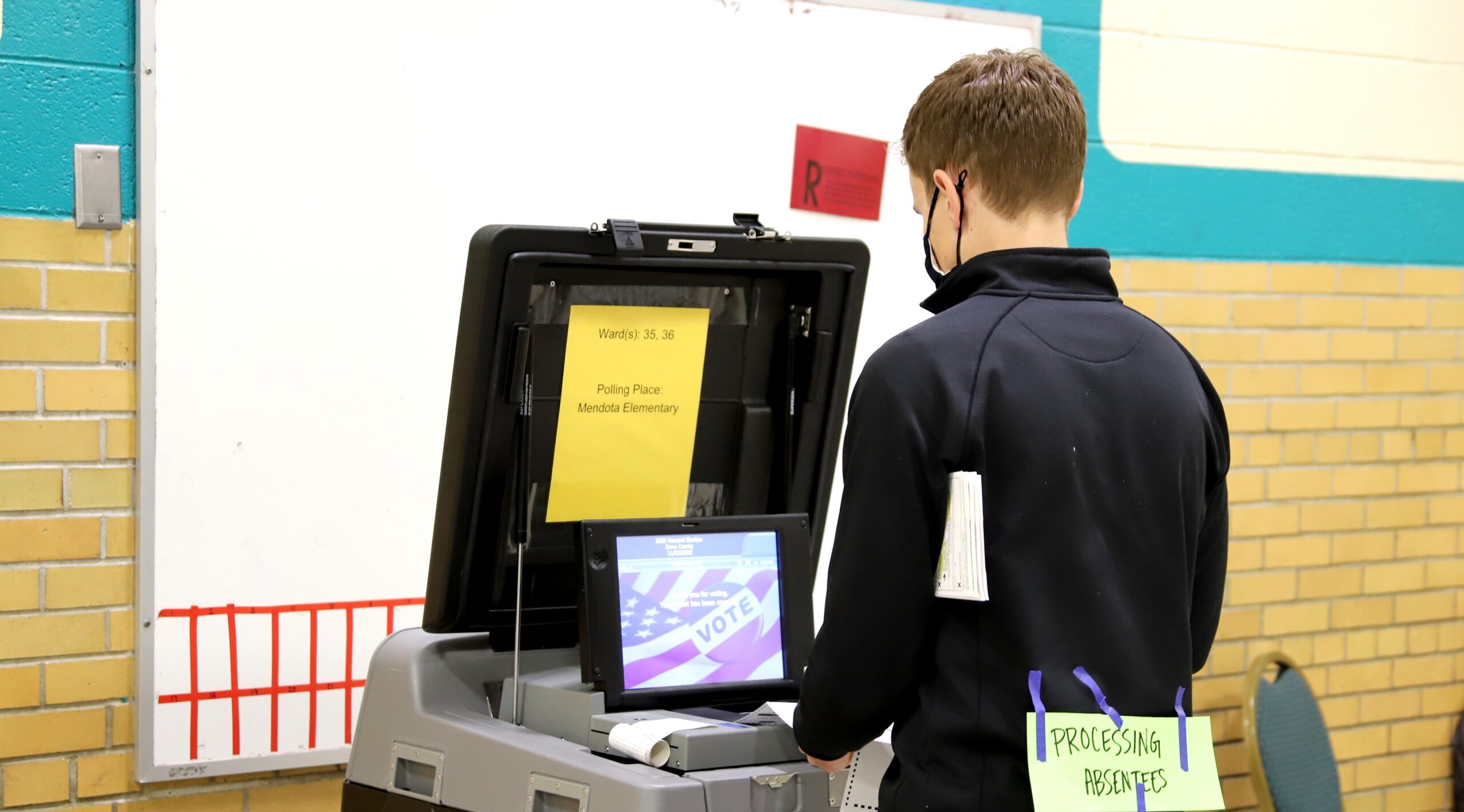A year after Wisconsin voters approved two statewide referendums, a Dane County judge is weighing whether they were improperly placed on the ballot and should be overturned.
Circuit Court Judge Rhonda Lanford heard arguments Wednesday in a lawsuit challenging whether the two ballot referendums — one to change cash bail laws and one to assess voters’ perspectives on public benefits — should have appeared on an April 2023 ballot.
The initial lawsuit was filed last year by EXPO Wisconsin, which organizes formerly incarcerated people, and WISDOM, a faith-based organization. The suit argued that the Wisconsin Elections Commission sent the initiatives to county clerks past the deadline required under state law.
Stay informed on the latest news
Sign up for WPR’s email newsletter.
In the time since Lanford first heard testimony in February of last year, those initiatives went before voters and passed.
In court Wednesday, attorney Jeff Mandell argued that the social justice groups were denied the opportunity to educate voters and organize in opposition to the referendums, according to voting rights law.
He requested a declaratory judgment regarding the timeline for submitting ballots to clerks, and potentially overturning the outcome of April’s vote on the initiatives.
“If the court finds that we are correct, that these referenda were not eligible for the ballot in April of 2023, the court should strike the vote that occurred in April of 2023 and the referenda should need to be voted on again, at a future election,” Mandell said.
Kevin LeRoy, an attorney for the Legislature, argued overturning the results of an election would be “extraordinary” and is a step that should only be taken if the election process was catastrophically mismanaged.
“This is simply not the case that the two-day delay in the delivery of the resolutions to the clerks … made this election ‘so riddled with errors and mistakes that substantial doubt is cast on its results,’” he said, citing existing case law.
Lanford did not issue a ruling from the bench and said she will issue a written opinion.
When the initial lawsuit to challenge the ballot initiatives was filed in January of last year, plaintiffs asked for a one-year injunction on the measures. Lawyers for the Wisconsin Elections Commission and the Legislature argued against the request, saying postponing the ballot questions would deny Wisconsin voters the right to weigh in on important matters.
Lanford ultimately decided at that time that the Legislature had “substantially” complied with the law when it sent the language of the ballot measures to the Elections Commission, and the initiatives moved forward and passed in April of last year.
One of the measures amended the state Constitution’s approach to imposing cash bail on people charged with committing violent crimes. The other was a nonbinding referendum asking whether to require “childless, able-bodied adults” to search for employment while receiving public benefits.
Wisconsin Public Radio, © Copyright 2025, Board of Regents of the University of Wisconsin System and Wisconsin Educational Communications Board.





